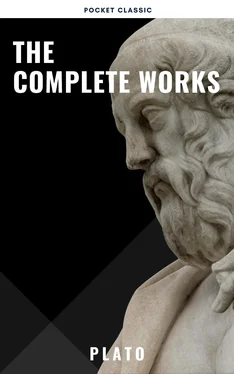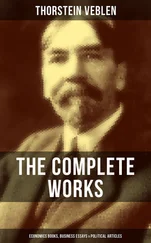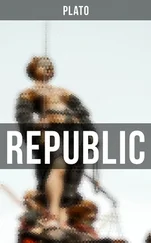SOCRATES: It will be no easy matter, but I will try to please you to the utmost of my power. Suppose that you call one of your numerous attendants, that I may demonstrate on him.
MENO: Certainly. Come hither, boy.
SOCRATES: He is Greek, and speaks Greek, does he not?
MENO: Yes, indeed; he was born in the house.
SOCRATES: Attend now to the questions which I ask him, and observe whether he learns of me or only remembers.
MENO: I will.
SOCRATES: Tell me, boy, do you know that a figure like this is a square?
BOY: I do.
SOCRATES: And you know that a square figure has these four lines equal?
BOY: Certainly.
SOCRATES: And these lines which I have drawn through the middle of the square are also equal?
BOY: Yes.
SOCRATES: A square may be of any size?
BOY: Certainly.
SOCRATES: And if one side of the figure be of two feet, and the other side be of two feet, how much will the whole be? Let me explain: if in one direction the space was of two feet, and in the other direction of one foot, the whole would be of two feet taken once?
BOY: Yes.
SOCRATES: But since this side is also of two feet, there are twice two feet?
BOY: There are.
SOCRATES: Then the square is of twice two feet?
BOY: Yes.
SOCRATES: And how many are twice two feet? count and tell me.
BOY: Four, Socrates.
SOCRATES: And might there not be another square twice as large as this, and having like this the lines equal?
BOY: Yes.
SOCRATES: And of how many feet will that be?
BOY: Of eight feet.
SOCRATES: And now try and tell me the length of the line which forms the side of that double square: this is two feet—what will that be?
BOY: Clearly, Socrates, it will be double.
SOCRATES: Do you observe, Meno, that I am not teaching the boy anything, but only asking him questions; and now he fancies that he knows how long a line is necessary in order to produce a figure of eight square feet; does he not?
MENO: Yes.
SOCRATES: And does he really know?
MENO: Certainly not.
SOCRATES: He only guesses that because the square is double, the line is double.
MENO: True.
SOCRATES: Observe him while he recalls the steps in regular order. (To the Boy:) Tell me, boy, do you assert that a double space comes from a double line? Remember that I am not speaking of an oblong, but of a figure equal every way, and twice the size of this—that is to say of eight feet; and I want to know whether you still say that a double square comes from double line?
BOY: Yes.
SOCRATES: But does not this line become doubled if we add another such line here?
BOY: Certainly.
SOCRATES: And four such lines will make a space containing eight feet?
BOY: Yes.
SOCRATES: Let us describe such a figure: Would you not say that this is the figure of eight feet?
BOY: Yes.
SOCRATES: And are there not these four divisions in the figure, each of which is equal to the figure of four feet?
BOY: True.
SOCRATES: And is not that four times four?
BOY: Certainly.
SOCRATES: And four times is not double?
BOY: No, indeed.
SOCRATES: But how much?
BOY: Four times as much.
SOCRATES: Therefore the double line, boy, has given a space, not twice, but four times as much.
BOY: True.
SOCRATES: Four times four are sixteen—are they not?
BOY: Yes.
SOCRATES: What line would give you a space of eight feet, as this gives one of sixteen feet;—do you see?
BOY: Yes.
SOCRATES: And the space of four feet is made from this half line?
BOY: Yes.
SOCRATES: Good; and is not a space of eight feet twice the size of this, and half the size of the other?
BOY: Certainly.
SOCRATES: Such a space, then, will be made out of a line greater than this one, and less than that one?
BOY: Yes; I think so.
SOCRATES: Very good; I like to hear you say what you think. And now tell me, is not this a line of two feet and that of four?
BOY: Yes.
SOCRATES: Then the line which forms the side of eight feet ought to be more than this line of two feet, and less than the other of four feet?
BOY: It ought.
SOCRATES: Try and see if you can tell me how much it will be.
BOY: Three feet.
SOCRATES: Then if we add a half to this line of two, that will be the line of three. Here are two and there is one; and on the other side, here are two also and there is one: and that makes the figure of which you speak?
BOY: Yes.
SOCRATES: But if there are three feet this way and three feet that way, the whole space will be three times three feet?
BOY: That is evident.
SOCRATES: And how much are three times three feet?
BOY: Nine.
SOCRATES: And how much is the double of four?
BOY: Eight.
SOCRATES: Then the figure of eight is not made out of a line of three?
BOY: No.
SOCRATES: But from what line?—tell me exactly; and if you would rather not reckon, try and show me the line.
BOY: Indeed, Socrates, I do not know.
SOCRATES: Do you see, Meno, what advances he has made in his power of recollection? He did not know at first, and he does not know now, what is the side of a figure of eight feet: but then he thought that he knew, and answered confidently as if he knew, and had no difficulty; now he has a difficulty, and neither knows nor fancies that he knows.
MENO: True.
SOCRATES: Is he not better off in knowing his ignorance?
MENO: I think that he is.
SOCRATES: If we have made him doubt, and given him the ‘torpedo’s shock,’ have we done him any harm?
MENO: I think not.
SOCRATES: We have certainly, as would seem, assisted him in some degree to the discovery of the truth; and now he will wish to remedy his ignorance, but then he would have been ready to tell all the world again and again that the double space should have a double side.
MENO: True.
SOCRATES: But do you suppose that he would ever have enquired into or learned what he fancied that he knew, though he was really ignorant of it, until he had fallen into perplexity under the idea that he did not know, and had desired to know?
MENO: I think not, Socrates.
SOCRATES: Then he was the better for the torpedo’s touch?
MENO: I think so.
SOCRATES: Mark now the farther development. I shall only ask him, and not teach him, and he shall share the enquiry with me: and do you watch and see if you find me telling or explaining anything to him, instead of eliciting his opinion. Tell me, boy, is not this a square of four feet which I have drawn?
BOY: Yes.
SOCRATES: And now I add another square equal to the former one?
BOY: Yes.
SOCRATES: And a third, which is equal to either of them?
BOY: Yes.
SOCRATES: Suppose that we fill up the vacant corner?
BOY: Very good.
SOCRATES: Here, then, there are four equal spaces?
BOY: Yes.
SOCRATES: And how many times larger is this space than this other?
BOY: Four times.
SOCRATES: But it ought to have been twice only, as you will remember.
BOY: True.
SOCRATES: And does not this line, reaching from corner to corner, bisect each of these spaces?
BOY: Yes.
SOCRATES: And are there not here four equal lines which contain this space?
BOY: There are.
SOCRATES: Look and see how much this space is.
BOY: I do not understand.
SOCRATES: Has not each interior line cut off half of the four spaces?
BOY: Yes.
SOCRATES: And how many spaces are there in this section?
BOY: Four.
SOCRATES: And how many in this?
BOY: Two.
SOCRATES: And four is how many times two?
BOY: Twice.
SOCRATES: And this space is of how many feet?
BOY: Of eight feet.
SOCRATES: And from what line do you get this figure?
Читать дальше












